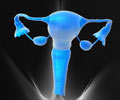Full chromosome analysis, called array Comparative Genomic Hybridisation (CGH), is believed to have led to the birth of a baby in Britain. The couple, screened at Care Fertility in Nottingham, find themselves lucky after 13 failed IVF attempts.
Experts hail the event as a landmark. This is now the first time the whole process has been carried out within the UK and the first time in the world the eggs have been used fresh instead of frozen and thawed.The test involves taking a sample of a 'spare' set of chromosomes that are expelled by the egg as it joins with the sperm.
The chromosomes are then compared against a set identified by the Human Genome Project that are proven to be normal.
It takes 48-hours to complete, meaning the eggs can be used fresh - further boosting the chances of success, instead of having to freeze them which can cause damage.
The new test could double the success rates of IVF, as it is thought one of the main reasons for failure to conceive and miscarriage is faults in the egg. If only perfect eggs are fertilised and implanted in the womb, then the chances of pregnancy are increased.
The method adds around £2,000 to the cost of a cycle of IVF treatment, which varies from around £3,000 to £6,000.
Advertisement
"Full chromosome analysis may double the chance of success in couples who have a poor chance of conceiving or a history of failed treatments and miscarriage; and maximise the chance of pregnancy in all couples.
Advertisement
Prof. Fishel said: “All the team at CARE have been waiting for this very special baby to be born.
"Oliver’s birth is an important landmark in shaping our understanding of why many women fail to become pregnant.”
In one clinical trial run by Care the number of embryos successfully implanted in the womb rose from 25 per cent to 50 per cent following the screening. Two thirds of the pregnancies were carried to term with 26 out of 42 women having babies.
During the clinical trial, the samples taken from the eggs had to be sent to an American centre for the test to be carried out and the eggs had to be frozen in the meantime.
The technique has since been improved and can be processed faster, meaning the eggs do not have to be frozen while waiting for the test results.
Mr Tony Rutherford, Chair of the British Fertility Society, said: “Firstly, I would like to congratulate the team at CARE Fertility for their exciting research into the use of comparative genomic hybridisation (CGH) as a means of pre-implantation genetic screening (PGS), and to wish both mother and baby well. The technology certainly offers much promise.
" However, whilst the BFS supports the application of new technologies such as array CGH, it is absolutely essential that these new techniques are subject to further rigorous research, and should only be offered to patients within the context of a robustly designed clinical trial, carried out in suitably experienced centres.
"The widespread use of this technology should await the outcome of such research to ensure we know which patients might benefit. All too often we see groundbreaking news about techniques that seem to offer great hope, but fail to live up to expectations when applied in widespread clinical practice.”
Source-Medindia
GPL













